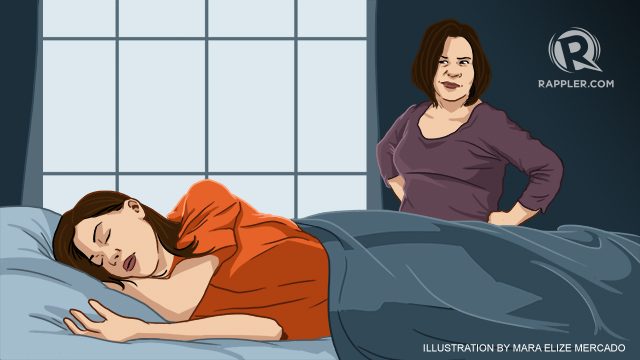SUMMARY
This is AI generated summarization, which may have errors. For context, always refer to the full article.

The one thing I do not ever want to be again is a teenager. So much misunderstanding goes on between teenagers and their parents, other adults or even with their younger siblings that this stage is like the twilight zone of human lifespan. One of these misunderstandings is why teenagers sleep too late at night or sleep too much in the morning.
It is only in the last decade that we have had enough scientific studies to tell us that teenagers are not simply adult-looking creatures who have an extraordinary bias in favor of bad judgment. There are so many things about the uniqueness of the teenage brain and some of them I have already previously shared with you. But some of them, like “sleep,” deserves a closer look. For this, I digested the book The Teenage Brain by neuroscientist Frances Jensen. It is a sober guide to this roller coaster stage in human life.
“The early bird gets the worm” is only good if you were a bird or if you like worms. “Sleep” is not a one-size-fits-all activity. This is because sleep patterns are not governed by proverbs but a tangled messaging network between hormones and brain signals, which in turn depends on stages of maturation.
The hormone melatonin which is crucial in making you sleep visits the teenager’s “bedtime” state two hours later than it does in adults (melatonin decreases with age). This explains why making teenagers sleep before 10pm is like making Jell-o hang from a string. The frustration does not even stop there as getting them up for school early is an even bigger problem.
Scientists who study teen sleep have calculated that teenagers need about 9 hours sleep.
But why? They no longer have enough waking hours devoted to helping around the house or their younger siblings and they still need to sleep more than anyone else in the family?
Despite the seemingly adult-ish appearance, behind the teenage skull is another story. The teenage brain is under construction – the brain parts are all there but they are not well-connected yet. The hydrant-rush of hormones, egged by time, also make teenagers a stranger even to themselves. They are learning so many things in rapid fire that they need lots of sleep to rest, consolidate, strengthen and even prioritize learning.
One of the extraordinary gifts that teenagers exhibit is cramming. They do this by pulling all-nighters just before an exam. Then they brag about how they were still able to wake up on time and even do well in tests even if they have been repeatedly told by their teachers and parents that cramming is no good. This may be a surprise to teenagers but tests are something school designed so that we can have some measure to show your parents why they send you to school. “Learning,” on the other hand, is something that will be part of you, for the rest of your life. And the bad news is cramming never makes you learn – not the kind that goes into your long-term memory which you would need, at all the points in your long life.
At night, even when Ms. Melatonin finally comes in to lull them long after she has done her job with the parents and the younger kids, texting and other screens further complicate teen sleep patterns since LED screens have been found to silence melatonin’s power by as much as 22%. Jensen’s book mentioned a study that found that teenage boys text an average of 3,300 a month while teenage girls are at 4,050. I think it is a good guess to say that an inordinate amount of that are done at bedtime.
Jensen also cited a study that sleep is not just about turning fleeting facts and experience into useful long-term information. Sleep has this amazing ability to do some kind of categorization of memories according to their emotional importance. If teenagers don’t get enough sleep, teenagers will have a difficult time distinguishing which ones matter and which ones don’t. Thus, they get overwhelmed and stressed which as we know, is the lament of most teens.
And we have a problem since the ways we have been used to is more often than not, ignorant of the importance of teen sleep. This is why the very early school bell for teens may not be be good for how teens are learning. And with regular monstrous traffic, they are awake even earlier than that.
Neuroscience has revealed secrets of the teenage brain. One of them assures us that sleep is not a willful part of the teenage sloth’s life strategy. They need sleep – lots of it. And it should happen during the times that our current daily routines want them awake and alert. If we want teenagers to learn, we cannot ignore what their brains have to teach us. – Rappler.com
Add a comment
How does this make you feel?





There are no comments yet. Add your comment to start the conversation.